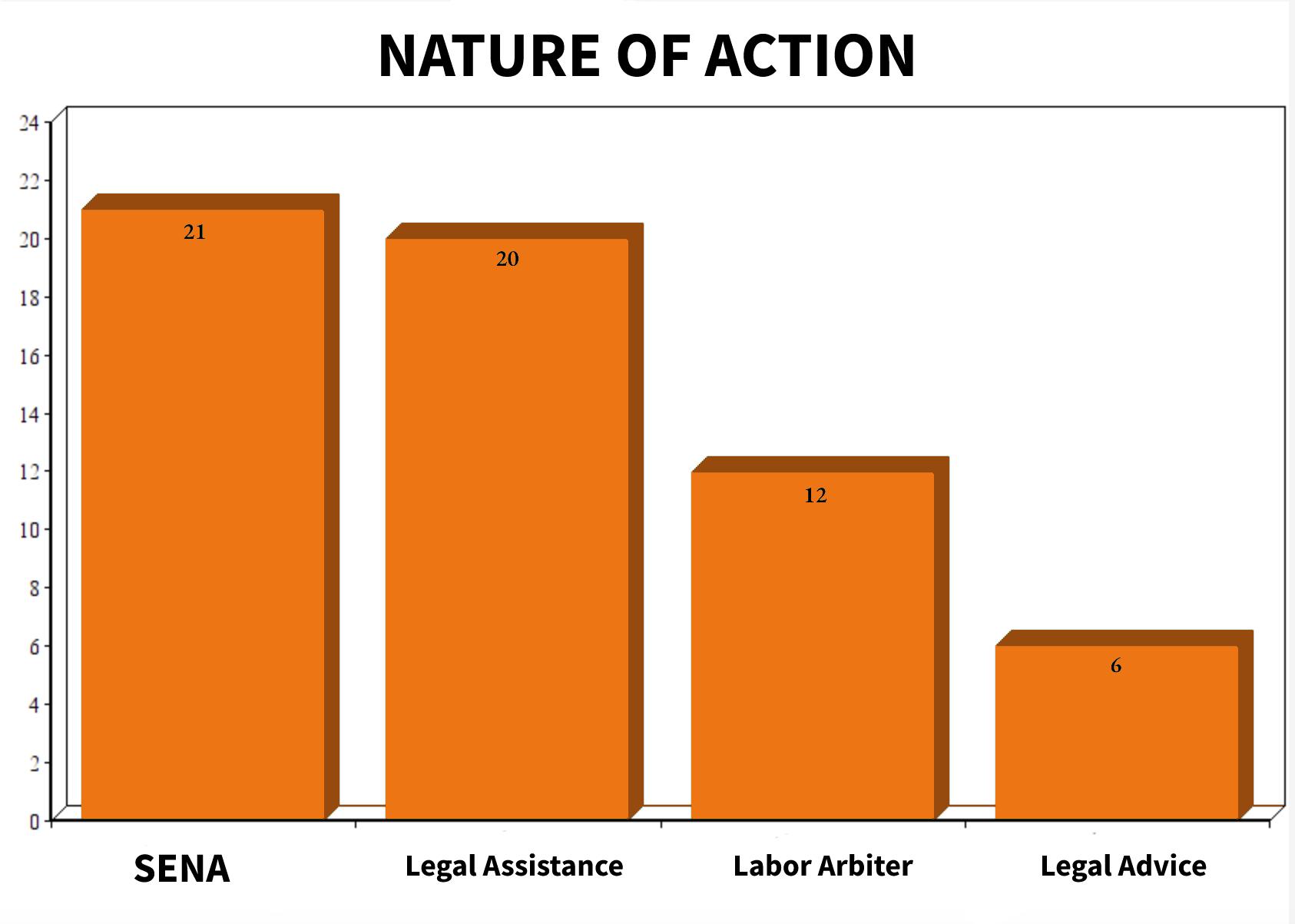
2 minute read
SCOPES AND LIMITATIONS
from Clear Policy Paper
by IDEALS Inc.
This policy note seeks to assess the cases handled by IDEALS from August 1, 2020 to April 15, 2021. All the cases cover labor rights violations involving workers affected by the COVID-19 pandemic. This means that only those workers whose employment, in one way or another, have been affected by the restrictions on quarantine measures imposed by the government, or whose employers have decided to terminate employees, are qualified to become a client. With the use of the Tisya Hustisya Project23 of IDEALS and through referrals from partner organizations, the clients for this project were selected if their issue involved labor disputes in the time of the pandemic and if they sought legal assistance from IDEALS. Specifically, the following labor disputes or cases were considered:
1. Violation of Labor Standards - non-payment/underpayment of the following: wages, 13th month pay, nightshif differential, service incentive leave, overtime pay, holiday pay, and contributions to the Social Security System, the Philippine Health Insurance Corporation, and the Home Development Mutual Fund (commonly known as Pag-IBIG Fund); 2. Illegal Dismissal - Non-payment/underpayment of separation pay, constructive dismissal, and forced resignation; and, 3. Both violations of Labor Standards and Illegal Dismissal.
Advertisement
The graph above shows that 47 out of 59 clients (79.66%) sought assistance for their illegal dismissal cases, six clients (10.17%) for both illegal dismissals and violations of labor standards, and another six (10.17%) complained of violations of labor standards.
This policy note also aims to focus on the assessment of the current settlement of labor disputes involving the SENA, specifically if it is achieving its goal for a speedy disposition of cases in the time of the pandemic. It also seeks to evaluate the effects of the quarantine restrictions on the administrative processes in the DOLE implementing agencies and the logistical limitations of the offices.

The graph shows that the most common assistance requested by the clients is through the SENA. The CLEAR project has assisted 21 (35.59%) of the total 59 clients through the SENA. 20 individuals (33.90%) have decided not to file any case before the DOLE and have settled their disputes afer IDEALS had provided legal assistance. 12 (20.34%) have been assisted in their complaint before the Labor Arbiters, while six (10.17%) sought comprehensive legal advice.
Finally, this policy note seeks to point out the similarities and differences in the implementation of the SENA. It is worthy to note that the SENA, as a program, is being managed by the NCMB, yet there are several implementing bodies within the DOLE Central and Regional Offices. Majority, or 37 out of 59, of the clients come from the National Capital Region while some come from the nearby provinces and a small number come from Mindanao.




